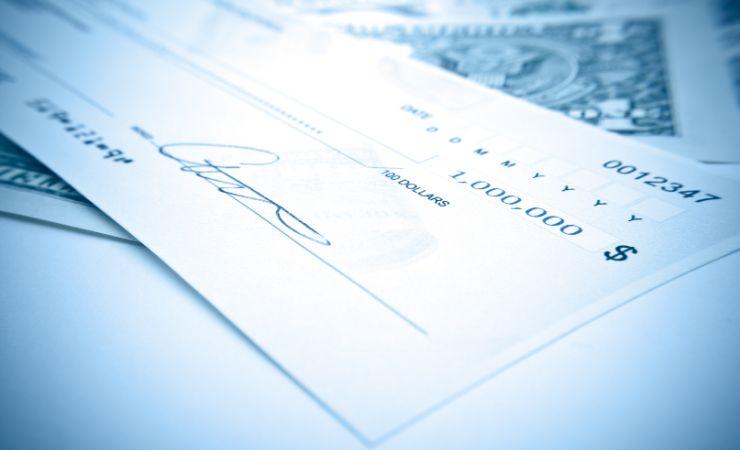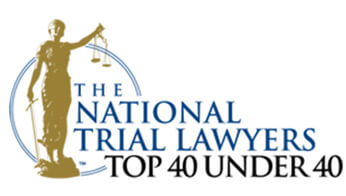Staten Island Check Fraud Lawyer

Staten Island Check Fraud Attorney
Committing check fraud is the act of intentionally writing a check to defraud the merchant or individual to whom the check was written. In some aspects, this white collar crime is similar to credit card fraud, in that the person accused of fraud is using a check as the means of purchase without the actual funds to support the purchase. However, check fraud can also occur in other ways, including unintentionally. A Staten Island check fraud lawyer can defend you if you are accused of check fraud.
At The Vitaliano Law Firm, our white collar crime attorney understands the complexities of this offense and the repercussions that you could face if convicted. We know that a simple mistake doesn’t have to cost you a lifetime of penalties. When you work with our team, you get the support you need from the knowledge and experience we bring. We have been defending Staten Island clients for years, using our vast experience on both sides of the law.
Types of Check Fraud
Check fraud is defined by New York Penal Law 190.05. Under this law, the payee assumes ownership of the account associated with the check and writes it, knowing that the account contains insufficient funds or that the entity receiving the check will refuse it for insufficient funds. While most banks account for instances of insufficient funds as a simple mistake or accident, commonly shown as NSF on a bank statement, those who consistently face NSF penalties may be committing check fraud.
While this is the most common way to be accused of check fraud, you could also face charges if any of the following occur:
- Fake checks. While many banks have used technology for their betterment and allow images of checks to be submitted by account holders and merchants, many online criminals find it easier to obtain images of checks to replicate them. In replicating a check and attempting to use it, the accused could face both check fraud charges as well computer fraud. These charges would likely be filed in federal court.
- Payday loan check fraud. Many people take advantage of services that allow for loans associated with checks received on payday. In essence, a person is getting their payday funds early and then repaying them when the payday occurs. The companies that issue the loans may use automatic withdrawals for repayment, and those who commit fraud may intentionally keep a low balance or close the account before the funds can be withdrawn.
- Washing checks. Check fraud can occur when someone obtains one of your checks and then attempts to modify it. One way in which this happens is through the process referred to as check washing. This is when a person uses specific solvents to erase the writing on a check and then rewrite it.
- Kiting checks. This occurs when a person opens bank accounts at multiple banks and then writes checks between the accounts. For example, a person writes a check from their account in Bank One to their account in Bank Two without the available funds to cover it. Then, before the check clears Bank Two, they reverse the process back into Bank One to cover the amount. Thus, they can fraudulently give themselves an interest-free loan.
Penalties for Check Fraud in Staten Island
Depending on the circumstances of the fraud, the penalties could vary. Generally, check fraud is a misdemeanor resulting in up to three months in jail and fines of up to $500. These penalties can be impacted by factors such as:
- Whether the accused has a criminal record
- The amount of the fraud
- Whether the fraud is charged on a state or federal level
In addition to charges for check fraud, those who commit this crime risk being charged with other crimes, such as forgery, embezzlement, conspiracy, or identity theft. As other charges are added, or the amount of fraud committed increases, you could face steeper penalties. You might even face federal charges instead of or in addition to state charges.
Staten Island Check Fraud FAQs
Q: What Is the Penalty for Check Fraud in Staten Island, NY?
A: Because check fraud is considered a misdemeanor in New York, the penalties could include up to three months in jail and up to $500 in fines. However, the circumstances of the crime could change the potential penalties that you may face. The addition of other charges, your criminal record, and whether it is charged federally or at the state level will also determine the penalties that you could face.
Q: Can You Go to Jail for Depositing a Fake Check in New York?
A: Jail time for check fraud could last up to three months. However, if the resulting fraud is greater than $1000, you could face a felony charge, which may result in up to four years in prison. Each instance of fraud could be charged separately, which could mean that a separate prison term is assigned for each charge.
Q: Is Writing a Bad Check a Felony in NY State?
A: If the amount of the fraud is less than $1000, it is considered a Class B misdemeanor. As a misdemeanor, the penalty could be a jail term of up to three months. However, if the fraudulent activity is more than $1000, then it is considered a felony and could result in large fines and longer prison terms. The addition of other crimes committed during check fraud charges could also result in felony charges.
Q: Is Bouncing a Check a Crime in Staten Island, NY?
A: Bouncing a check is often referred to as check fraud. While mistakes can happen, resulting in an NSF fee or penalty on a bank statement, the act of consistently, repetitively, or intentionally writing a bad check is considered a Class B misdemeanor and punishable by up to three months in jail and fines of up to $500.
Staten Island Check Fraud Lawyer
Being accused of check fraud can have significant impacts on your future. At The Vitaliano Law Firm, our team knows that a mistake shouldn’t cost you your future. With the potential for fines, jail time, and other consequences, you deserve a defense that puts your interests first. Our firm aggressively and compassionately fights on behalf of our clients. Contact us today for a consultation on how our white collar crime lawyer can help in your check fraud case.
Testimonials






